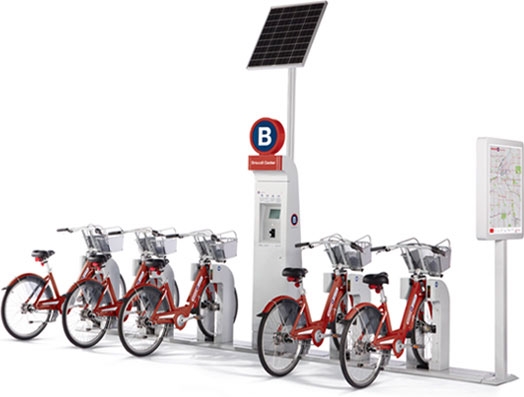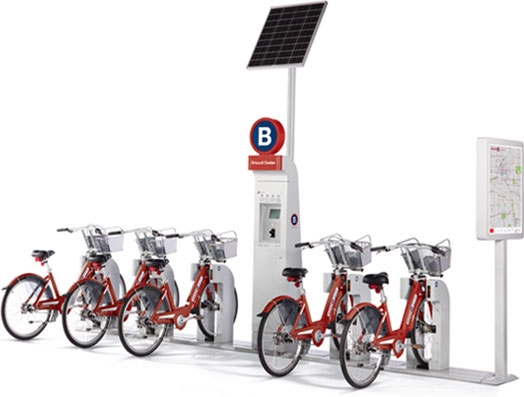 Courtesy B-cycleDenver today launches the nation’s largest bike-sharing program, distributing 500 bicycles at 50 stations around the city for citizens to use wherever they find them. The B-cycle program mirrors bike-sharing networks in Paris and Montreal, and it’ll be followed soon by networks in Boston and Minneapolis. Oh, and Mexico City too, which is launching a 1,114-bike program.
Courtesy B-cycleDenver today launches the nation’s largest bike-sharing program, distributing 500 bicycles at 50 stations around the city for citizens to use wherever they find them. The B-cycle program mirrors bike-sharing networks in Paris and Montreal, and it’ll be followed soon by networks in Boston and Minneapolis. Oh, and Mexico City too, which is launching a 1,114-bike program.
The hope is that people can leave their car at home, take light rail or a bus into the city, and use the bikes to zip around.
Participants can sign up at denver.bcycle.com, where they pay membership and usage fees. A 24-hour membership is $5; seven-day is $20; 30-day is $30; and an annual membership costs $65, with discounts for students and seniors. Rides shorter than 30 minutes are free, and usage fees begin at $1.10 and run up to $65 for a full day (which seems a little stiff), according to The Denver Post.
A nifty feature: The network has a GPS tracking system that lets users see where and how far they biked and also locate nearby bikes.
The project doesn’t use local tax dollars — it’ll run off user fees and a $210,000 federal stimulus grant.
My biggest regret about reporting in Copenhagen last December was failing to find time to use the city’s famed bike-sharing network. And my favorite social observation about bike-sharing is a problem Rio de Janeiro encountered: people much prefer riding bikes downhill to riding up. I read somewhere that all the bikes ended up at the bottom of hills and had to be trucked back up. I bet the right payment scheme could solve that problem: charge more for cycling downhill, pay riders a little to return bikes to the uphill stations.
Anyway, props to Denver. Anyone there used B-cycle yet?



